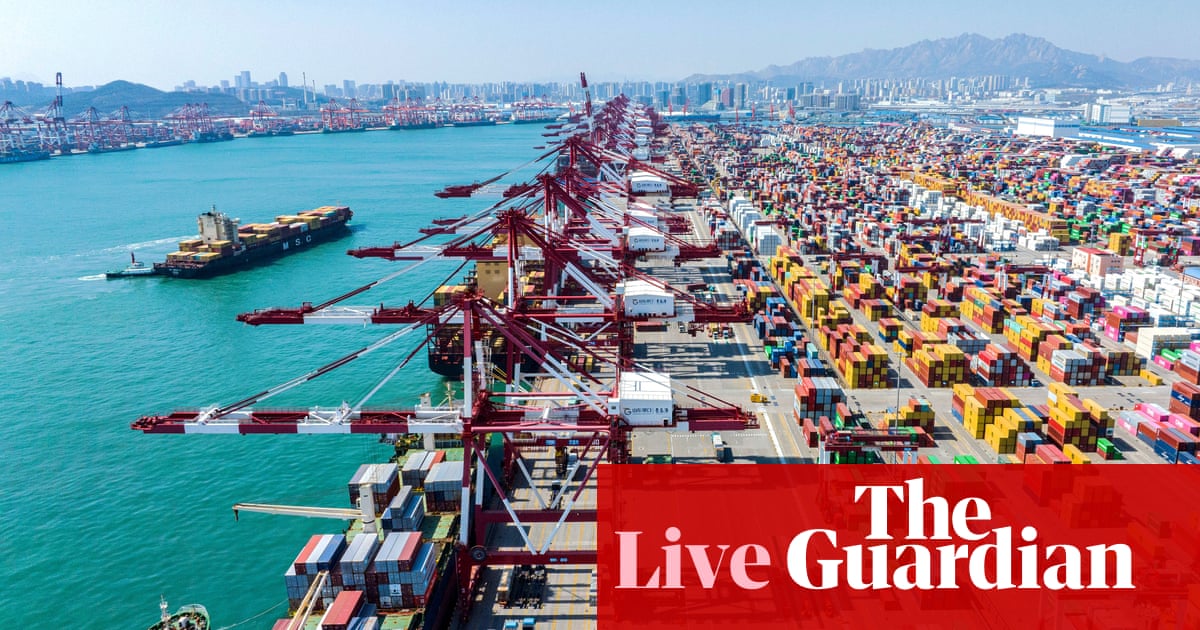Trump's Tariff Medicine: Asia Market Plunge – A Bitter Pill to Swallow
The escalating trade war between the US and China sent shockwaves through Asian markets, triggering a significant plunge following President Trump's latest tariff announcements. This isn't just a ripple effect; it's a full-blown market tsunami, leaving investors scrambling and economies bracing for impact.
The Trigger: President Trump's recent decision to impose further tariffs on Chinese goods, targeting a broad range of products, ignited the sell-off. This aggressive move, seen by many as an escalation rather than a resolution, fueled fears of a protracted trade war with potentially devastating consequences for global growth.
Asia's Pain Points: The impact on Asian markets has been immediate and severe. Major stock indices in Japan, South Korea, Hong Kong, and other Asian nations experienced sharp declines. This isn't surprising, given Asia's deep integration into global supply chains and its significant reliance on trade with both the US and China.
- Export-Oriented Economies: Many Asian economies are heavily reliant on exports to the US and China. The trade war disrupts these established trade flows, impacting businesses and causing uncertainty.
- Supply Chain Disruptions: The imposition of tariffs complicates supply chains, forcing companies to reassess their sourcing strategies and potentially leading to increased production costs.
- Investor Sentiment: The escalating trade conflict significantly dampens investor confidence, leading to capital flight and further depressing market values.
Beyond the Headlines: Deeper Impacts
The market plunge is more than just a headline-grabbing event; it's a symptom of a deeper malaise affecting the global economy. Several key factors contribute to this:
- Uncertainty and Volatility: The unpredictable nature of the trade war makes it difficult for businesses to plan for the future, leading to uncertainty and reluctance to invest. This volatility impacts everything from employment to consumer confidence.
- Global Growth Slowdown: The trade war is a significant drag on global economic growth. The International Monetary Fund (IMF) has already revised its global growth forecasts downward, citing the trade tensions as a major contributing factor.
- Geopolitical Tensions: The trade war is not just an economic issue; it has significant geopolitical implications, increasing tensions between the US and China and potentially destabilizing the international order.
Looking Ahead: A Path to Recovery?
The path to recovery remains uncertain. While some analysts remain optimistic about a potential resolution, the current trajectory suggests a prolonged period of market volatility and economic uncertainty. Several scenarios are possible:
- Negotiated Settlement: A negotiated settlement between the US and China would be the most favorable outcome, although the likelihood of this remains unclear.
- Prolonged Trade War: A prolonged trade war would likely lead to further economic slowdown and increased market instability.
- De-globalization: The trade war could accelerate a trend towards de-globalization, with countries increasingly focusing on domestic markets and reducing their reliance on international trade.
Conclusion:
President Trump's tariff strategy has undeniably delivered a bitter pill to Asian markets. The plunge highlights the interconnectedness of the global economy and the far-reaching consequences of escalating trade disputes. The situation demands careful observation and strategic planning from both governments and businesses alike. The coming months will be crucial in determining whether this is a temporary setback or a harbinger of a more significant economic restructuring.
Further Reading:
Disclaimer: This article provides commentary and analysis based on currently available information. It is not intended as financial advice. Consult with a financial professional before making any investment decisions.

